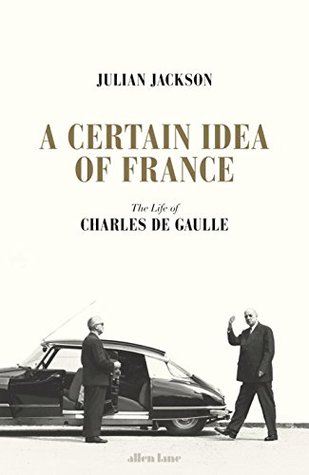More on this book
Community
Kindle Notes & Highlights
Read between
October 13 - December 25, 2023
He wanted détente – but détente carried out through the Europeans, not imposed on them by the great powers.
soon after returning from Quebec, de Gaulle poured out all his bile: Do you think it mattered to me not going to Ottawa? … There would have been all those toasts to the Queen of England! I would rather die than go to Canada and toast the Queen of England … I was relieved when they offered me the pretext to leave … All that will give lots of copy to the worthless and supine press under the heel of the Americans, the Israelis and all the others.
In the France of the 1960s, ‘Auntie [Tante] Yvonne’ was the anti-Bardot: the symbol of all that seemed most prudish and narrow-minded in bourgeois Catholicism next to the symbol of sexual provocation, proto-feminism and youth.
While he was President, de Gaulle read two or three books a week – usually history, novels or poetry – and made a valiant attempt to keep up with contemporary literature. He always read the winners of the main literary prizes.
De Gaulle told his son that he did not like Proust’s ‘preciousness and contorted style, and his artificial milieu where the point of existence was society dinners’.
He was, however, a great admirer of Marguerite Yourcenar’s Memoirs of Hadrian,
the American government finally accepted negotiations to find a way of ending the Vietnam War. Paris was chosen as the venue for the talks because de Gaulle’s position during the war had won him the trust of the North Vietnamese. After all the setbacks of 1967, this was a signal success for French diplomacy. The talks opened at the Hôtel Majestic in Paris on 13 May, but this important event went almost unnoticed because on the same day France was plunged into revolution.
In his view it was the role of educators to orient pupils in the right direction; the needs of the economy must trump the desires of students. It is hard to imagine a view more at odds with the mood of French students in the 1960s.
De Gaulle ruminated at length about the resemblance between May 1940 and May 1968, two moments, in his view, when France’s elites had betrayed her.
long been saying about the need for social reforms. He
The rumbling psychodrama between Pompidou and de Gaulle took a strange new twist in the autumn of 1968. On 1 October, the body of Stephan Marcović, former bodyguard of the film star Alain Delon, was found in a dump outside Paris. The killer was never identified, but the police investigation discovered that Marcović had been in the habit of taking secret photographs at parties hosted by Delon, possibly with the intention of blackmailing the subjects. Among the celebrities rumoured to have attended these parties was Pompidou’s wife, Claude.
For this second 18 June after his resignation, de Gaulle had elected to visit Spain, where he was keen to meet General Franco. The visit started on 3 June 1970 in Galicia because his wife wanted to go to Compostela.
From the other side of the political spectrum, the satirical ultra-leftist magazine Hari-Kiri carried on its front cover the headline: ‘Tragic ball at Colombey: one dead’ (this was a reference to a fire in a dancehall in the same month where 146 people had died). For this impudence the government closed down the magazine which promptly renamed itself Charlie Hebdo.
In the 1970s, as de Gaulle’s successors – first Pompidou and then even more Giscard – embarked on a more Atlanticist and pro-European policy, the Communists began to see more good in de Gaulle and glided over those aspects of his domestic policy they had opposed.
After 1968 this myth was challenged by a younger generation. One striking example was the famous documentary The Sorrow and the Pity by Marcel Ophuls which came out in 1969. While it is not quite true, as has often been claimed, that the film suddenly replaced the image of France as a nation of resisters with that of France as a nation of collaborators, it did offer an unprecedentedly dark picture of the Occupation in which there were a few heroes, a few villains and a lot of cowardly attentistes. In the four hours of the film de Gaulle was hardly mentioned. The film was iconoclastic enough
...more


